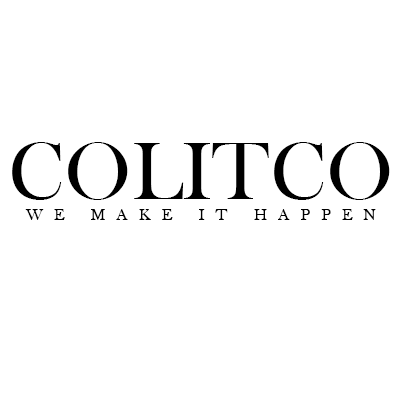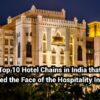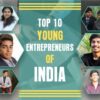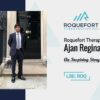Roquefort Therapeutics (LSE: ROQ, QTCQB: ROQAF) (Roquefort) is an LSE main-market-listed BioTech company exploring the high-value and high-growth oncology market. We at Colitco secured an exclusive interview with Ajan Reginald, CEO of Roquefort Therapeutics.
Q: Ajan Reginald, thank you for agreeing to give Colitco an exclusive. Before we get into Roquefort Therapeutics and your company’s work in oncology, could you tell us a little about your background?
A: Thank you for inviting me to speak with you. I’ve worked in Biotech and Pharma companies for about 20 years, including Roche and BCG and studied at the University of Oxford, Kellogg and Harvard Business school. I have developed medicines from just an idea to completing clinical trials, and I am an author of approximately 100 patents.
Q: I understand your Biopharma career came about by accident. Can you tell me more, Ajan Reginald?
I did not set out to become a Biotech entrepreneur and originally graduated from London University with a degree in dental surgery and practised Dentistry for a few years. Unfortunately, I had to retire early due to an injury and was then found unfit to practice and lost my licence.
After leaving dentistry, I completed an MBA from Kellogg Business School at Northwestern University. Then, I was recruited by the global consultancy firm BCG (Boston Consulting Group). My work at BCG focused on the Biopharmaceutical industry, specifically on strategy and intellectual property functions, which are vital for success in this sector. My projects included defining the US Oncology strategy and organisation for a Big Pharma company and the marketing and sales of the Nordic portfolio for a large US Pharma company. Other projects included manufacturing a leading medicines manufacturing and drug development and portfolio management for a leading Swiss Pharma conglomerate.
I was doing something right as my last client at BCG was a pharma giant, Roche, who offered me a role as the Business Development Director in Basel, Switzerland, focused on the licensing and acquisitions of Biotech companies. Our team completed several strategic transactions, including the $1B RNA partnership with Alnylam. I was promoted to the newly created Global Head of Emerging Technologies role for the Roche Group. This corporate function identified and acquired the next generation of technologies that underpin new medicines and diagnostics. This was a fantastic opportunity to learn how strategy can be translated and implemented through transactions.
I also worked closely with Roche’s Scientific Advisory Board which included leaders in science and medicine, to explore the next generation of medical innovation. During this time, we gained unique early access and expertise in novel scientific fields as they emerged and began identifying the key challenges and opportunities to develop new classes of medicines. Many of these were the too early stage for Big Pharma; therefore, we partnered with or acquired Biotech companies that had initial results or proof-of-concept medicines; this is where I got my passion for finding the most exciting medical innovation.
In 2009, I moved back to the UK for personal reasons and started investing in early start-ups as an Angel investor. I reconnected with Professor Sir Martin Evans, 2007 Nobel Laureate. Martin and I had worked together on Emerging Technologies at Roche and shared a passion for breakthrough innovation. We wanted to focus on the new field of cellular medicine and co-founded a Biotech company, Cell Therapy Ltd, in 2009.
We started with early-stage research, which took much work to start a Biotech as markets crashed and funding dried up. Nevertheless, we persevered – and Martin and I worked for free, with me funding the operating costs with grant support. During this time, Martin invented a new class of cellular medicines. These regenerative cells were unique and not found in nature. The cells were tailored to treat diseases like cancer or heart disease. Once Cell Therapy Ltd had reached the proof-of-concept stage with this highly innovative cellular medicine, we could bring in external funding. We brought in expert angel investors and were able to develop our medicines and test their safety.
Our technology was attracting positive media coverage, and we started to get attention from leading physician-scientists. We met Professor Steve Westaby, an eminent Oxford heart surgeon and his team. This team had already completed pioneering work with stem cells and undertook an independent clinical trial (investigator-sponsored study) using our new cells. They found some remarkable results in the field of heart failure, which were reported by the Telegraph and Daily Mail.
In 2015, we raised $1M via crowdfunding, valuing the company at £75M, a world record in Biotech and an all-time high for UK crowdfunding. With this funding, we were able to accelerate our product development and hire additional expertise. Meanwhile, early investors had already seen a significant increase in the value of their shareholding – with the early angel investors realising a 20x increase by 2015.
The proof-of-concept results were published in 2016 and attracted Big Pharma, leading to a significant licencing deal with Daiichi Sankyo for the Japanese market. This transformative deal included £12.5M upfront, licensing milestones and royalties and a £5M equity investment, valuing the company at £200M. In this equity funding round, shareholders could sell their shares, with some early investors realising a 100x return, a great success for all involved. Rewarding early investors is critical to establish the angel investor value creation cycle needed to support early-stage risky businesses, without which innovation may never be developed.
While running Cell Therapy Ltd, I completed my training in Biotech by doing an MSC at the University of Oxford in Experimental Medicine and the Advanced Management Program at Harvard Business School. This allowed Cell Therapy to form an international network of Biotech and business leaders.
Some key opinion leaders, including Professors Westaby, Keating and Fox, stayed with Cell Therapy through five funding rounds and saw significant progress in developing medicines and subsequent value creation, with the company valuation reaching £200M. Some of our earliest investors realised ~100X increase in value through the secondary placement. This value creation, whereby the commercialisation of breakthrough innovation is closely aligned to shareholder value creation, creates a sustainable model for funding new medicines.
All our employees were allocated shares and rewarded for their hard work and dedication. This allowed us to recruit some of the world’s leading scientists and physicians, accelerating our development of new medicines. Unfortunately, we also attracted negative attention from a malicious anti-stem cell campaigner and the tabloid press targeting Martin and me. The author of the vexatious blog has been found guilty of libel on multiple occasions and seems to target high-profile scientists. Especially Nobel Laureates. They are also alleged to be motivated by religious and racial prejudice.
Regardless, we continue to progress and develop new medicines. Two innovative medicines designed to treat cancer were spun into a new company, Oncogeni, which Roquefort Therapeutics acquired in September 2022. I was delighted when the Board invited me to lead the company as its CEO.
Q: I understand you joined Roquefort Therapeutics recently, and the company has already reported several new product developments. Ajan Reginald, can you tell us more about the developments at Roquefort Therapeutics?
A: Yes, I joined Roquefort Therapeutics in September 2022, and my experience in drug development, transactions, and commercialisation is relevant to developing Roquefort’s portfolio of anti-cancer drugs. We currently hold 36 patents. We have four pre-clinical development programs: Midkine antibodies, Midkine oligonucleotide, STAT-6 siRNA and MK Cell Therapy. siRNA targets solid tumours and MK cell therapy targets leukaemia and myeloma cells. Two Midkine antibodies have reached significant milestones, demonstrating in vivo safety for breast and lung cancer cells.
Q: That’s interesting, Mr. Ajan Reginald. Before I ask about these recent developments, can you tell me how Roquefort targets breast and lung cancer specifically?
A: Roquefort Therapeutics focuses on fields with the highest unmet need. Over the past 30 years, medicine has been tremendously developed, and treatment for several cancers and tumours is much better than before. However, despite these developments, some cancers are not as well treated as others, of which breast and lung cancer are two examples. Even with the best treatments, metastatic breast and lung cancer do not have a good prognosis. The mortality rates are almost 70%, so Roquefort focuses on metastatic breast and lung cancer.
Q: Can you explain how the antibodies developed at Roquefort help treat breast and lung cancer?

ROQ-A1 and ROQ-A2 target Midkine
A: Our Midkine antibodies target Midkine, a protein highly expressed in cancer, inflammatory and autoimmune conditions. Midkine prevents cancer cell death and promotes metastatic spread to other organs. However, two antibodies, ROQ-A1, and ROQ-A2, target this protein. Both have shown efficacy in the lab. To us, efficacy is as simple as killing cancer. The efficacy measure is how many cancer cells can each of the antibodies kill.
Q: Excellent; we can expect a pipeline of news in 2023. Mr. Ajan Reginald, can you tell me about Roquefort’s strategy for 2023?
A: Roquefort’s strategy is to identify early innovations in biotech therapeutics, develop them, and look for the best outlier sensing partner. We have the hands-on expertise to identify and develop early innovation technologies and get clinical trial approvals from European, UK and USA regulators. By finding the right partner, we can ensure that the medicine reaches the patients that most need it, thereby creating value for our shareholders. We believe that our model is highly scalable and cost-effective.
Our core focus is developing innovative cancer medicines, and we have made good progress with our pipeline of pre-clinical medicines. This work is being completed at our state-of-art facilities in the UK and through our network of international partners.
In parallel, we have accelerated our business development activities by meeting a number of the leading large pharmaceutical companies to introduce the Company and present our programs. This has enabled us to accelerate our out-licensing strategy in core and non-core applications. You will have seen that we recently signed a licensing and royalty agreement with Randox Health in diagnostics and our Midkine antibody portfolio. Not only does the transaction highlight our strong IP position and strengthen our balance sheet, but it also reflects the high level of interest in our novel cancer pipeline and highlights the Company’s ng capabilities. This synergistic partnership with a leading diagnostics company like Randox enables us to remain focused on developing first-in-class medicines. In contrast, Randox develops the Midkine cancer diagnostics essential for our clinical trials.
Q: How did Roquefort develop such a strategy, Mr. Ajan Reginald?
A: The UK has a wealth of innovation and scientific ability but needs more funding and depth of experience in commercialising this innovation. At Roquefort, we are blessed with both innovation and requisite expertise. We’ve built a distributed drug development network that makes our model scalable and sustainable. We are developing the pipeline with a highly efficient and effective approach – we can rapidly define new value market niches, acquire medicines for these markets and then develop them quickly and cheaply in a package that is appealing to potential acquirers. This comes from our experience and our network in Biotech.
Q: Regarding the four programs you mentioned, Mr Ajan Reginald, can you tell us how you’ve progressed with those?
A: Yes. Last year, we set the proper foundation. We are focused on delivering the milestones that drive the value inflexion in Biotech, like completing in vivo efficacy studies. The four programs are the MK cell therapy program, Midkine RNA program, siRNA, and two Midkine antibodies. In Q4 last year, we set up research collaborations for all four programs, from which we expect to share milestones in the next two quarters.
We can expect some news from Roquefort Therapeutics shortly. Thank you, Mr. Ajan Reginald, for taking the time to speak with us.
If you enjoyed Colitco’s exclusive discussion with Ajan Reginald, you could look at Roquefort Therapeutic’s official website as well as Ajan Reginald’s social media.
Disclaimer
.











